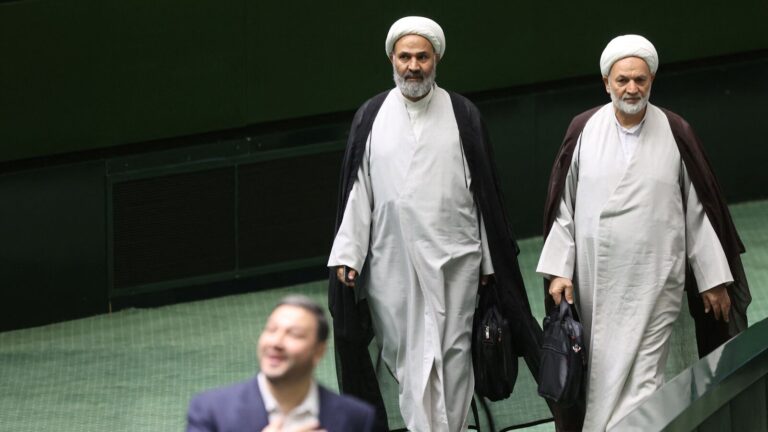With the mourning period over for President Ebrahim Raisi, who was killed in a recent helicopter crash, Iran has turned its attention to elections scheduled for next month to choose his successor.
Conservatives are seeking to install a staunch supporter of Supreme Leader Ayatollah Ali Khamenei as president, and a diverse field of candidates from across the political spectrum is in the race ahead of early voting on June 28.
Registration for presidential candidates begins Thursday.
Iranian lawmakers on Tuesday reaffirmed their election as speaker of the country of former Revolutionary Guards commander Mohammed Bagher Qalibaf, who had been eyed by insiders and Iranian state media as a possible presidential candidate. AP report.
Also read: Who is Ebrahim Raisi? A protege of Iran’s Supreme Leader Ali Khamenei
The ultra-conservative Raisi died in a helicopter crash on May 19 with more than a year left in his first term, along with Foreign Minister Hossein Amir Abdollahian and six others, when his helicopter crashed into a mist-shrouded mountainside.
Meanwhile, their funerals took place over several days and were attended by large numbers of mourners.
The June elections are scheduled at a turbulent time due to the ongoing Gaza conflict between Israel and the Tehran-backed Palestinian militant group Hamas, and amid ongoing diplomatic tensions over Iran’s nuclear program.
Additionally, Iran is grappling with significant economic challenges exacerbated by the reimposition of harsh international sanctions following the U.S. withdrawal from the 2015 nuclear deal and the aftermath of widespread anti-government protests.
Who is on the presidential candidate list?
Khamenei, the state’s supreme leader, has tasked Raisi’s deputy, Mohammed Mokbel, 68, with overseeing interim responsibility and organising elections in June. AP report.
Media reports said Mokbel, Parliament Speaker Mohammed Bagher Ghalibaf and several prominent former government officials were planning to run for Iran’s No. 2 position.
Among the many candidates, ultra-conservative former nuclear negotiator Said Jalili has emerged as one of the first to announce his candidacy for the presidency.
Also read: What will happen to the Iranian government after Ebrahim Raisi’s death?
Other notable candidates include moderate former foreign minister Mohammed Javad Zarif and centrist former parliament speaker Ali Larijani.
Reports say APPopulist former president Mahmoud Ahmadinejad has previously confused voters, saying he was “monitoring the situation to decide whether to register or not.”
“We have to wait for positive developments in the country,” he added.
A long way ahead
Political expert Abbas Abdi told the reformist newspaper: Hamihan He said that if Iran’s “protest community” sees an opportunity for change, “it will demonstrate its protest, action and responsibility by participating in the elections.”
Related article: Western officials prepare for instability in Iran after Raisi’s death
“I am confident that reformists will win by a landslide,” he said, but only if they are able to take part in the election, a major concern after many candidates were disqualified ahead of recent elections.
Abdi added that if the authorities allowed a wider range of candidates to run this time, “it would give the people the hope they need and lead to a higher participation rate.”
Also read: Ebrahim Raisi dies in helicopter crash: What does Iranian president’s death mean for India-Iran ties?
Under Iran’s electoral procedure, candidates formally register to run within a designated period starting May 30. But the final list is subject to a verification process carried out by the conservative Guardian Council after the June 3 registration deadline.
The 12-member body, responsible for monitoring the elections, has previously disqualified a number of candidates, including Ahmadinejad and Larijani.
Recent parliamentary and presidential elections have seen declining voter turnout despite government efforts to encourage participation.
Ahead of Iran’s March 1 parliamentary elections, the Guardian Council has invalidated the candidacy of tens of thousands of mostly reformist and moderate candidates.
The vetting process has effectively strengthened the influence of conservative and ultra-conservative politicians in Iran’s political landscape. Parliamentary elections in March recorded the lowest voter turnout since 1979.
(With input from AP)
You are on Mint! India’s No.1 News Site (Source: Press Gazette). For more of our business coverage and market insights, click here!

